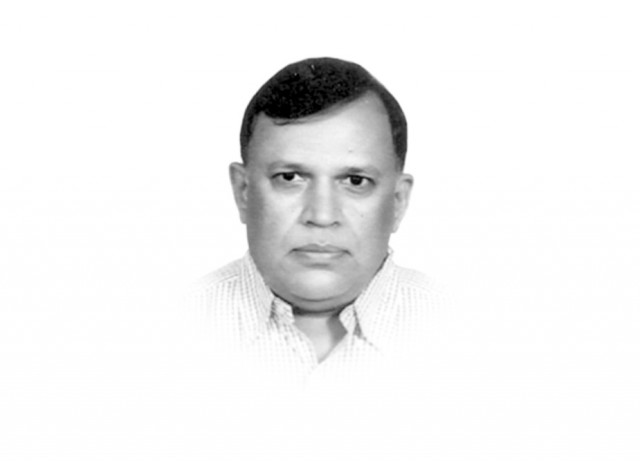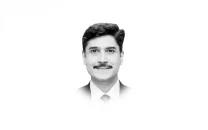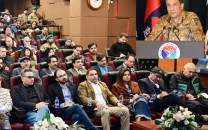Remembering a freedom fighter
Malik Barkat Ali was elected on a Muslim League ticket to the Punjab Assembly from the eastern districts in 1937.

Remembering a freedom fighter
He belonged to a middle-class family and, after a distinguished academic career, joined FC College as assistant professor of English after doing his MA and later served in Islamia College. Barkat Ali joined government service in 1907 after sitting in a competitive examination in which he stood first. While posted at Lyallpur, he developed differences on principles and resigned in 1914. On April 13 of that year he joined English weekly The Observer as editor, which gained him prominence in Punjab politics.
His editorials annoyed the Punjab governor who asked proprietors to sack him or face closure, but they preferred ceasing publication. On December 22, 1919 he enrolled in the Punjab High Court and started active politics. He participated in annual sessions of the Muslim League, held in 1924, 1925 and 1926. In 1929, when Bhagat Singh was tried, a resolution condemning the trial was moved jointly by Allama Iqbal, Barkat Ali, Nanka Chand and Norang in the Lahore High Court Bar. He was an ardent supporter of Allama Iqbal and this association continued till the latter’s death in 1938.
Malik Barkat Ali was elected on a Muslim League ticket to the Punjab Assembly from the eastern districts of the province, in 1937. For seven years, he alone represented the Muslim League and opposed the Unionists. In Lahore, there was only one pro-League Urdu newspaper, Daily Ehsan and to fill this vacuum an English weekly The New Times was launched.
Malik Saheb actively campaigned on the Masjid Shaheed Gunj issue and on instructions of Allama Iqbal, filed a suit with the district judge in Lahore, who ruled against them. He later filed an appeal in the Lahore High Court (LHC).
The LHC decided against him, in January 1938, with Justice Din Mohamed dissenting. Allama Iqbal instructed him to present the Islamic Mosques Protection Bill in the assembly. However, Premier Sikandar Hayat, fearing trouble for his government, advised his governor to block the presentation of this bill. A civil disobedience movement was launched to protest the issue of Masjid Shaheed Gunj, and the Quaid in a letter to Allama Iqbal, dated March 2, 1938, desired that a special session of the All India Muslim League be convened in Lahore to discuss this matter. Allama Iqbal sent a formal invitation for holding this special session to be hosted by the Punjab Muslim League. However, history is testimony to the fact that this special session was never allowed to take place.
Published in The Express Tribune, April 5th, 2011.
















COMMENTS
Comments are moderated and generally will be posted if they are on-topic and not abusive.
For more information, please see our Comments FAQ